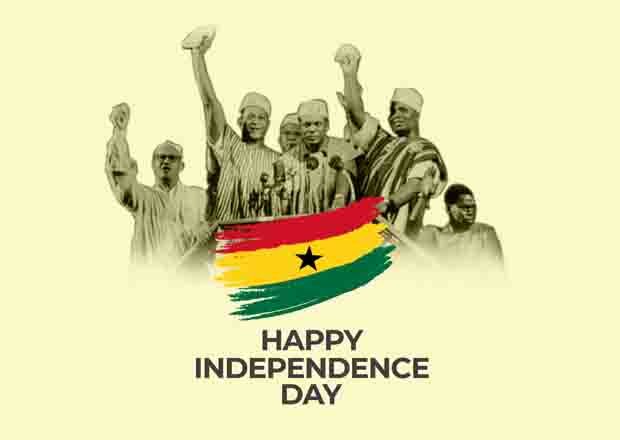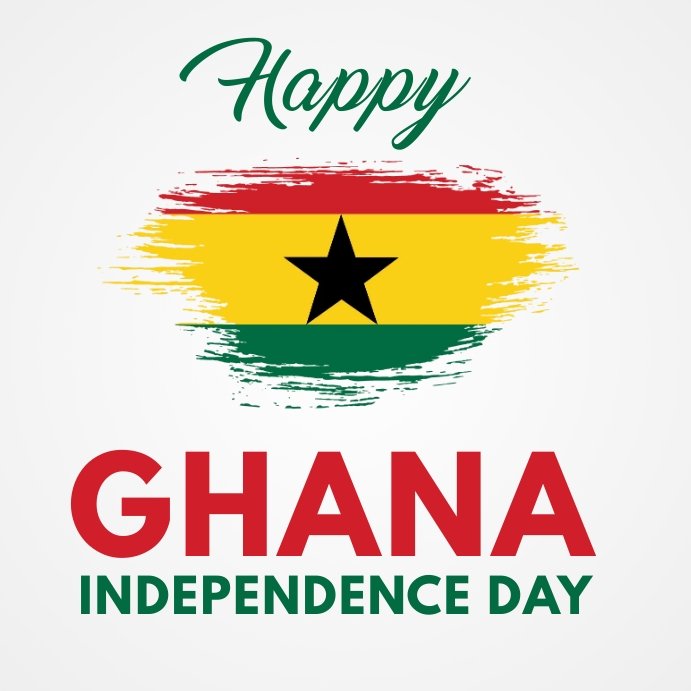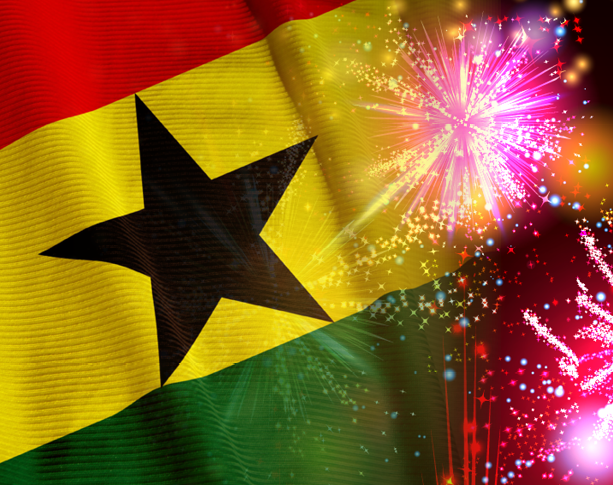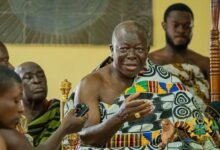Independence Day of Ghana, 6th March. 6 Interesting Facts.

Ghana.
Ghana Independence Day, celebrated annually on March 6th, marks the nation’s freedom from British colonial rule in 1957. This significant day holds deep historical and cultural importance for Ghanaians, reflecting their resilience, unity, and commitment to sovereignty. The journey to independence was marked by influential leaders, key events, and a vibrant cultural tapestry that continues to shape Ghana today.

Ghana, formerly known as the Gold Coast, was colonized by the British in the early 20th century. The quest for independence gained momentum with the rise of visionary leaders such as Kwame Nkrumah. His leadership and advocacy for self-rule propelled the nation towards the realization of its sovereign aspirations.

The road to freedom was not without challenges. Ghanaians engaged in various forms of protest and resistance, demanding their right to govern themselves. Kwame Nkrumah played a pivotal role in orchestrating these efforts, emphasizing unity and empowerment.

On March 6, 1957, Ghana made history by becoming the first sub-Saharan African country to gain freedom from colonial rule. The proclamation of independence at the Old Polo Grounds in Accra marked a momentous occasion, symbolizing the triumph of the Ghanaian spirit over years of colonial dominance.

The significance of Ghana Independence Day extends beyond historical milestones; it embodies the principles of freedom, justice, and unity. The national flag, with its vibrant colors and symbols, reflects these ideals. The black star at the center signifies African freedom, while the red, yellow, and green stripes represent the sacrifices made, the nation’s wealth, and its lush vegetation, respectively.

Celebrations on Ghana Independence Day are lively and diverse, reflecting the country’s rich cultural heritage. Festivities include parades, cultural performances, and patriotic displays. Ghanaians, both at home and abroad, come together to honor their history and reaffirm their commitment to a prosperous future.

In contemporary Ghana, Independence Day serves as a time for reflection on progress made and challenges faced. The nation has made strides in various sectors, including education, healthcare, and economic development. However, like many countries, Ghana grapples with ongoing issues, and Independence Day becomes a platform for discussions on the nation’s trajectory and future goals.

Beyond the borders of Ghana, Independence Day resonates with people of African descent worldwide. The celebration serves as a source of pride and inspiration, highlighting the resilience of a nation that overcame the shackles of colonialism. Ghana’s journey to independence remains a beacon for other nations striving for self-determination.
In conclusion, Ghana Independence Day is a poignant celebration that encapsulates the nation’s history, values, and aspirations. It is a day to honor the sacrifices of those who paved the way for freedom, celebrate the achievements of the present, and envision a future of continued growth and prosperity. The spirit of unity and resilience that defines this day continues to inspire not only Ghanaians but also people around the globe.
6 Interesting Facts of Independence Day.
1. First Sub-Saharan African Nation to Gain Independence:
Ghana made history on March 6, 1957, by becoming the first sub-Saharan African country to achieve independence from colonial rule. This groundbreaking achievement marked a turning point in the continent’s history, inspiring other nations on their paths to self-determination.

2. Symbolism in the National Flag:
The design of Ghana’s national flag is rich in symbolism. The black star at its center represents African freedom and the emancipation of the continent from colonial rule. The red, yellow, and green stripes symbolize the sacrifices made for independence, the nation’s wealth, and its lush vegetation, respectively.

3. Kwame Nkrumah’s Visionary Leadership:
Kwame Nkrumah, Ghana’s first Prime Minister and later President, played a pivotal role in the nation’s struggle for independence. His visionary leadership and commitment to Pan-Africanism contributed significantly to Ghana’s successful bid for sovereignty. Nkrumah’s legacy continues to be celebrated on Independence Day.
4. Unique Naming Traditions:
Independence Day in Ghana is often marked by unique naming ceremonies. Parents name their children born on this significant day with patriotic and nationalistic names, reflecting the pride and joy associated with Ghana’s freedom. This tradition adds a personal touch to the national celebration.

5. Cultural Extravaganza and Parades:
Independence Day celebrations in Ghana are marked by vibrant cultural displays and parades. Traditional dances, music, and colorful costumes take center stage, showcasing the nation’s diverse cultural heritage. These festivities not only entertain but also reinforce a sense of unity and pride among Ghanaians.
6. Global Impact and Pan-African Solidarity:

Ghana’s Independence Day holds resonance far beyond its borders. The nation’s successful liberation served as a source of inspiration for other African countries striving for independence. The day fosters a sense of Pan-African solidarity, reminding the world of the shared struggles and triumphs in the pursuit of self-determination.













